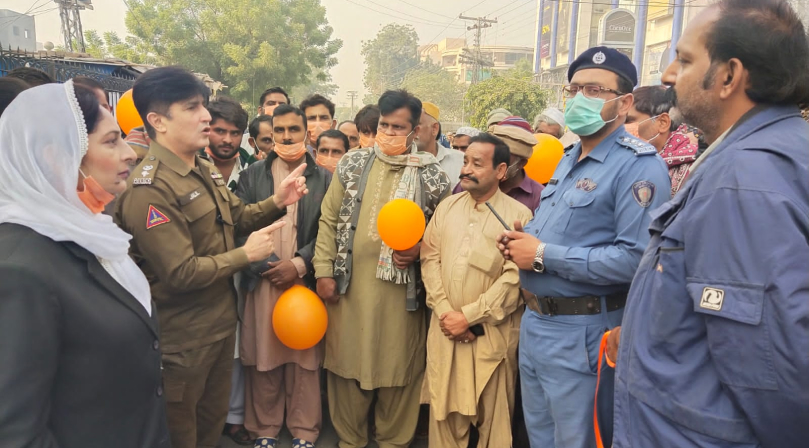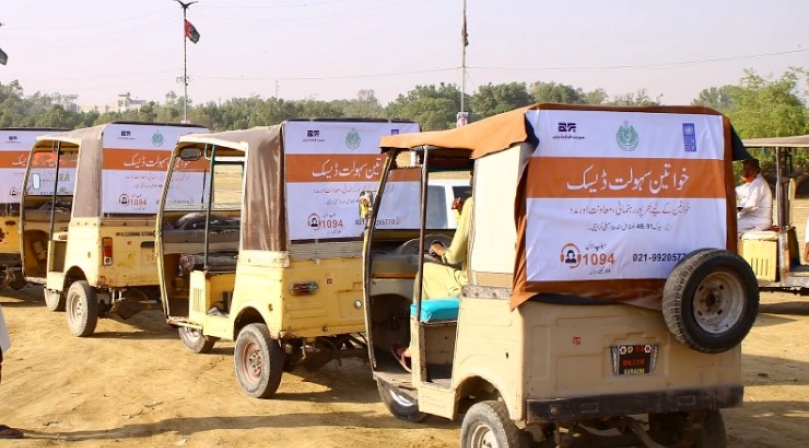Impact by Regions, Countries & Territories
UNDP’s Global Programme supports crisis-affected contexts across all regions to strengthen the rule of law and human rights. In this section, we present five regional overviews, detailing our priorities and approach depending on the context, as well as feature select country and territory results from 2021.
Five contexts from the list (Central African Republic, Democratic Republic of the Congo, Haiti, Mali and Yemen) illustrate the achievements of the Global Focal Point for the Rule of Law (GFP). In peacekeeping missions and transition settings, UNDP’s Global Programme works through the GFP to deliver integrated assistance with our UN partners.
GFP Global Focal Point Highlights
Political
Engagement
The rule of law is essential for sustainable peace and resilient economies, as well as for the prevention or recurrence of conflict. To prevent or address injustice, inequalities or democratic deficits, UNDP works with multiple stakeholders to operate in a way that is consistent with the rule of law and creates opportunities for all individuals to exercise their rights and access justice.
Institution
Building
The importance of strong institutions is more evident than ever as countries and communities respond to disruption, whether because of public health restrictions, climate change or political upheaval. Limitations on public gatherings and travel have revealed the need for institutions that are resilient to disruption.
Community
Security
2021 was a pivotal year that saw various developments affecting peace and security around the world. Civic space continued to shrink and the social contract between states and citizens was increasingly challenged, particularly during and after the response to the COVID-19 pandemic. Facing distressing consequences of climate change, states and communities are forced to manage more cross-border conflicts, triggered by the displacement of people seeking increasingly scarce resources.
Human Rights
Systems
The scope of human rights challenges is widening, from eroded public trust and shrinking civic space to ongoing inequality and human rights impacts in the socio-economic repercussions of the COVID-19 pandemic, and emerging risks in the digital sphere. National human rights institutions (NHRIs), along with other human rights defenders, are facing rising and sophisticated forms of reprisals for carrying out their work.
Access to
Justice
Sustainable Development Goal 16 (Peace, Justice and Strong Institutions) of the 2030 Agenda highlights the importance of access to justice for all for the development of peaceful and inclusive societies. Meaningful access to justice can only be achieved when people know their rights, have the opportunities, agency and capacities to claim them, and have access to independent, inclusive and people-centred justice systems that will respond in a timely, fair and effective manner.
Transitional
Justice
Without justice, there can be no lasting peace. In post-conflict, crisis-affected and fragile contexts, truth-seeking initiatives and reconciliation efforts are essential to bring peace to affected communities. The COVID-19 pandemic has slowed down transitional processes as states prioritized their response to the health crisis and measures to support the economy.
Gender
Justice
In 2021, the continued erosion of democracy and the spread of authoritarian trends in politics in many parts of the world contributed to a backlash against women’s rights. The COVID-19 crisis has reversed some of the hard-won gender parity gains by exacerbating pre-existing inequalities and power imbalances. It has also caused a dramatic increase in sexual and gender-based violence (SGBV). All these challenges have been particularly acute in conflict, fragile and crisis-affected settings.
Innovation
New ideas and new strategies are critical to building sustainable and effective development approaches that really meet people’s needs. Technologies and globalization raise new human rights concerns and threaten the rule of law. Responses to the COVID-19 pandemic continue to limit people’s access to basic services. UNDP connected expertise across the globe to learn and adapt. Creating a culture of curiosity and experimentation, these efforts ensured that local needs and expertise were combined with emerging models to bring strategic thinking to people-centred development goals.

Pakistan
In Pakistan, UNDP facilitated the establishment of the Rule of Law Delivery Unit and the development of the rule of law roadmap for Gilgit-Baltistan province, a historic step towards strengthening the rule of law in the region. Due to its unique administrative and constitutional status, Gilgit-Baltistan was failing to keep pace with other provinces of Pakistan with regards to institutional reforms and service delivery. The roadmap outlines the strategy for the rule of law reform in the region and reflects the commitment of the local government to improve human rights protection and access to justice, and mainstream gender equality, including through the police reform. The Rule of Law Delivery Unit will play a key role in the roadmap implementation.
Based on the regional needs and vision for digital transformation in Gilgit-Baltistan, UNDP supported the development of the Chief Court’s website, provided video conference equipment for the Chief Court and the Revenue Court, and the software for the Case Flow Management System (CFMS) for the judiciary in the province. The CFMS will expedite the case disposal rates and increase transparency, accountability and efficiency of the judicial system in Gilgit-Baltistan. To further support the judiciary, UNDP facilitated two trainings at Gilgit Baltistan Judicial Academy on human rights and rule of law. Sixteen judges attended, including two women judges and one female prosecutor from across the Gilgit -Baltistan region.
To strengthen the capacity of the police in Gilgit-Baltistan, UNDP established a virtual Command and Control Centre at the central police office allowing for monitoring and virtual meetings with field operations offices in remote areas. In addition, 32 police officers, including three women, participated in the training on criminal investigation.
Gender mainstreaming, promoting equality and providing legal support for women remains one of UNDP’s priorities in Pakistan. In 2021, through five Gender Desks in Karachi, Lahore, Multan, Quetta and Swat, access to legal awareness, legal counselling, legal aid and protection services was provided to 1,037 community members (83 percent women, 9 percent men and 8 percent transgender persons) across the four provinces of Pakistan. The majority of the cases concerned gender-based violence, inheritance and property rights, divorce and Khula (a procedure through which a women can divorce her husband in Islam). The Gender Desks are currently being institutionalized, ensuring that the services initiated are sustained under governmental funds.
Through radio and television programmes, UNDP contributed to awareness raising of the Gender Desks and their services, as well as of the national legislation that protect women’s rights. UNDP also launched an innovative campaign and engaged rickshaws in Karachi, Lahore, Multan, Quetta and Swat. Rickshaw drivers were encouraged to spread information within their communities and distribute communication materials to their passengers. 250 rickshaws with banners advertising the Gender Desks (50 per city) took part in the initiative. This strategy allowed UNDP to reach vulnerable and marginalized communities that do not have access to internet or traditional media sources.
By training and facilitating coordination among provincial service providers, UNDP also strengthened the accessibility of women’s protection services in five cities. Following the UNDP-organized trainings, 132 government officials, legal experts, and service providers (80 women and 52 men) designed strategies to improve access to justice for women and marginalized communities.


Key Results: Pakistan
1,037 community members (83% women, 9% men and 8% transgender persons) benefitted from the support and referral mechanisms of the Gender Desks.
Gender Desks officers facilitated 57 community awareness raising meetings in five locations with youth, transgender persons, persons with disabilities, rural women, domestic workers, and groups of religious and ethnic minorities. 1,353 people participated in the meetings (833 women, 346 men and 174 transgender persons).
32 police officers in Gilgit-Baltistan (including three women) participated in the training on criminal Investigation techniques. 16 judges (including two women judges and one women prosecutor) improved their knowledge on human rights and rule of law.
